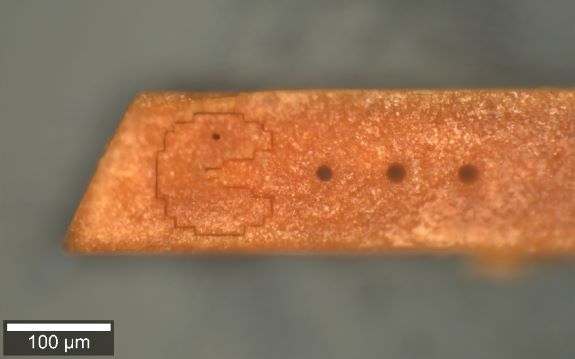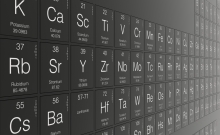
Pac-Man carving by laser cutting. Credit: H. Borchers et al.
A gentler, more precise laser cutting technique
Laser cutting techniques are usually powered by high energy beams, so hot that they melt most materials. Now scientists from McGill University have developed a gentler, more precise technique using low-power visible light.





